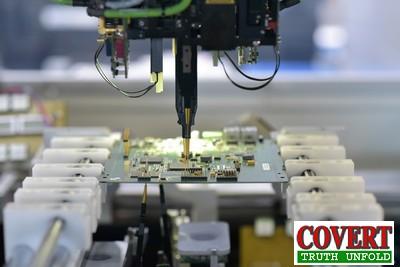
EU to spend €900M on expanding critical technologies
Pieter Haeck
Brussels: The European Union has set aside hundreds of millions of euros to grow companies working on critical technologies, such as microchips and quantum technology.
A new scale-up scheme is set to get the green light early this week, with a budget of €300 million for next year, according to a draft plan seen by POLITICO.
The total budget for the next three years — until the end of the EU’s current budget — amounts to €900 million.

With the fund, the European Commission aims to dissuade the bloc’s tech companies from tapping non-EU funds when they want to expand their operations significantly after their initial build-out. The United States, for example, is known to have far larger scale-up funds than Europe.

It has made the EU dependent on other regions, such as the U.S. and China, for technologies such as microchips and cloud services. The EU’s incoming tech boss, Finland’s Henna Virkkunen, is responsible for making the EU technologically “sovereign” again.

But even before she assumes office, the EU executive is already lining up cash to avoid strategically important tech companies from falling into foreign hands.
Under the new program, eligible companies can apply for an equity investment of between €10 million and €30 million — giving Brussels effective part ownership of these companies.
The fund is meant to scale up companies working on tech, clean tech or biotech that have already raised money. The companies should also be able to demonstrate interest from other, private, investors in joining the funding round.

Brussels’ share is also a minority of the funding round: The total sum should be three to five times Brussels’ investment.
For next year, the EU will specifically focus on chips and quantum technology companies.
The new scale-up fund joins a program Brussels already has in place, called the “European Innovation Council Fund,” which allowed it to make up to €15 million in equity investments.
In her program for the next mandate, European Commission President Ursula von der Leyen promised to expand the EIC even further.

Companies that won Brussels’ support under the previous program — like French chip designer SiPearl — could now seek a follow-up investment.
Just two weeks ago, a Commission expert group sounded the alarm on the EU’s poor scaling capacity.
“The EU is comparatively weaker than the U.S. and China with regard to the uptake, commercialization and scaling of new technologies,” the expert group wrote in a report.
Other reports, like those drafted by former Italian Prime Ministers Enrico Letta and Mario Draghi, also lamented startups’ poor access to funding.
